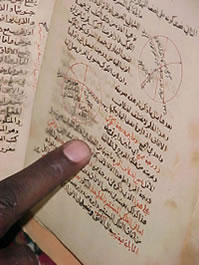‘D-Day has come.’ Listen with awe to BBC Home Service bulletins from this day 70 years ago. It’s thrilling to hear new recordings of original scripts by actors like Benedict Cumberbatch, but this contemporary recording of “a special midday bulletin” on the BBC’s Home Service is especially spine-tingling.
Category: History
Past and present troubles
The other day Tara Hunt wrote on her FB wall:
The more I read history, the more I realize that nothing new is new. We aren’t going to hell in a handbasket. Or rather, we’ve already been there and back time and time again.
I think that’s a really important insight about studying the past. We too often lose perspective on our own time in the context of history. We are smug about our apparent superiority or absurdly downcast about our present troubles.
Learning about history teaches humility, fear, and optimism. I think we have a lot more reason for realistic hope about the future than, say, Europeans in 1914 or 1939. When you look at the mass murder and totalitarianism that dominated the 20th century, we are very lucky indeed to live at a time when hierarchies are breaking down and new possibilities are opening up. Lots can and will go horribly wrong, but I think there’s a rapid revolution underway in our cultures, economies, and inner lives. I’m excited to see how the battle between networked individuals and centralized power works out.
John Ford’s combat footage from the Battle of Midway – June 4, 1942
Amazed to see this short color film via Vanished Americana… we forget how bleak and uncertain things looked for the allies in 1942.
The Arab as “white foreigner” – the contested heritage of Timbuktu

The legendary city of Timbuktu – a center for trade and learning for centuries and is the home of the oldest library south of the Sahara. Now, African and Saudi donors are joined in a contest to reframe the cultural heritage of a continent:
No one in Timbuktu has forgotten how the Moroccans conquered the city, plundered the libraries and dragged off the best scholars to Fes. Ahmed Baba, the philosopher, in chains! This is a source of embarrassment in Morocco today but the stolen manuscripts have yet to be returned to Timbuktu.
‘We were also colonised by the Arabs,’ says Mohamed Dicko, director of the Ahmed Baba Institute. ‘It was an intellectual, cultural colonisation and it is still at work today in the notion that everything good about Islam came from the Arabs. It is like during the French colonial era when school children were taught only French writers.’ Soon, for the first time, texts in Arabic by native Mali authors will be appearing in textbooks, he says.
Read more about the manuscripts, architecture, and cultural legacy of Timbuktu at Sign and Sight.
How a carefully disguised corpse helped win World War II

On April 30, 1943, the body of Glyndwr Michael, disguised as Major William Martin of the Royal Marines, was dropped into the sea off Huelva on the Spanish coast. In his briefcase were letters, meticulously faked by British intelligence officers to give the impression that the Allies intended to attack Greece, and not Sicily.
So begins the remarkable story of “Operation Mincemeat” – an amazingly complicated and surprisingly successful operation by MI5. After finding a suitable”volunteer” from the among the vagrants’ corpses in a London morgue, operatives created a detailed back story and a convincing set of personal effects and letters. A submarine deposited “Major Martin” a mile from shore with his attache case. Many twists and turns followed, even after the Germans took the bait. Here’s a thorough-seeming Wikipedia page on the operation.
The operation is detailed in a new book by Ben Macintyre which will be released in the U.S. in May 2010. The Times [UK] has been publishing lengthy and fascinating excerpts [part I; part II].
Civil War ghosts haunt Sally Mann’s photography
This segment from a documentary film about photographer Sally Mann focuses on her use of 19th Century technology to capture haunting images of Civil War battlefields. Appropriately spooky.
But Mann’s comments about photographic technique inspire greater respect for Matthew Brady and other period practitioners… they struggled mightily to avoid the “imperfections” Mann regard as stylish postmodern flourishes.
* Welcome new readers from Instapundit and elsewhere! The New Modern will be launching in earnest soon, so please consider subscribing to our mailing list or our RSS feed (or following us on Twitter or Facebook) to see more along the lines of this post as we get rolling. Thanks. –Andrew Hazlett
[Via @GreatDismal and @Charlie_Athanas]
This video clip is from What Remains – a 2005 documentary about Sally Mann’s work and family. Her book of photographs of the same title is available from Amazon.
Sad news: Bannerman’s Castle on an island in the Hudson River is crumbling

Bannerman’s Castle was already an enigmatic ruin in the middle of the Hudson River, a dreamy landmark for passing train travelers and a passionate cause for preservationists.
But then in the silence of last Saturday night, a large chunk of history suddenly disappeared when the castle’s stone, brick and cement sighed under a century’s weight of weather. Overnight, two-thirds of the eastern tower was gone, as well as one-third of the adjacent southern wall, leaving a gaping hole and concern over how to stop the crumbling.
Read more: nytimes.com
[via @marklamster]
The Vivid Imperial Scrolls of China
 Imagine waking one morning as heir to a major share of the planet:
Imagine waking one morning as heir to a major share of the planet:
“In 1689, Kangxi, the emperor of China, embarked on a tour to inspect his southern provinces, undertaking a two-thousand-mile journey from Beijing to the cities and towns of the Yangzi Delta and back…”
Read more about the Imperial scrolls at Humanities magazine.

